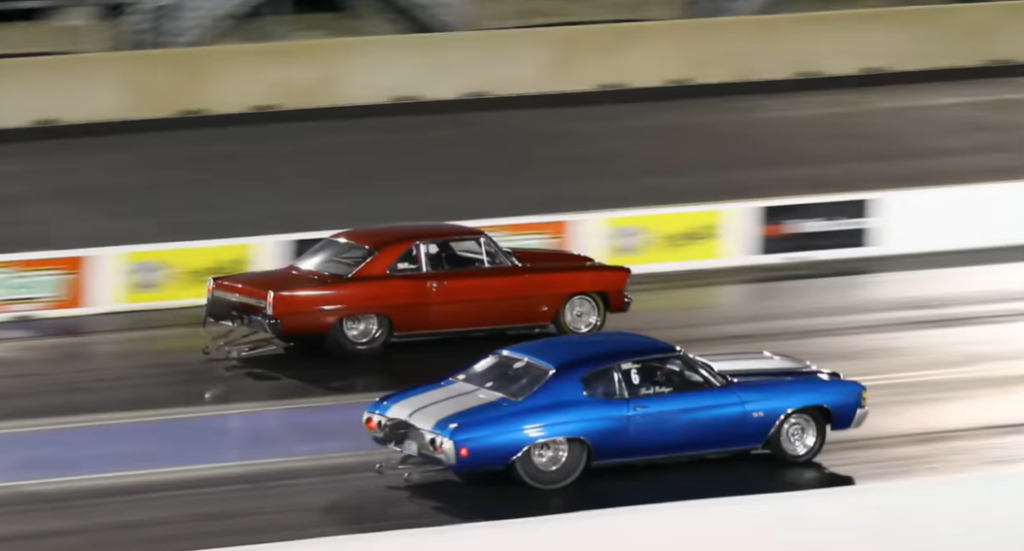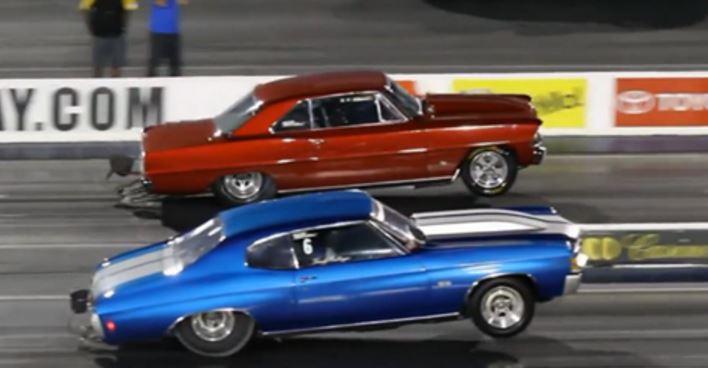No one on earth dislikes a close race, and regardless of your favorite sport or past time, nobody can help but stare as two very strong beasts sprint down the straight in around 8 seconds. And this time, we’ve got exactly that for you: a Nova is engaged in a fierce brawl with a Chevelle in the lane next to it.
Two of the most iconic muscle cars of all time are the 1967 Chevrolet Nova and the 1971 Chevrolet Chevelle. Which one is faster on a drag strip despite the fact that both have power and speed that are legendary?

The 1967 Chevy Nova has a small body and a powerful engine. It was equipped with a number of powerful motors, including the 327 V8, which generated 350 lb-ft of torque and 375 horsepower. It became a favorite among drag racers as a result, who favored its small weight and powerful engine. The 1967 Nova was renowned for its quick suspension and crisp handling, which made it a pleasure to drive on the drag strip.
On the other hand, the full-size muscle car designed for speed in 1971 was the Chevy Chevelle. A number of potent engines were available for it, including the 454 V8, which generated 450 horsepower and 500 lb-ft of torque. One of the quickest cars of its day, the Chevelle could travel the quarter-mile in under 14 seconds thanks to this enormous engine. The heavy-duty suspension on the 1971 Chevelle allowed it to withstand the enormous amount of power generated by its engine, making it a strong rival on the drag strip.

Which one is therefore quicker on the drag strip? It’s hard to answer because the 1967 Nova and the 1971 Chevelle each have advantages and disadvantages. The 1967 Nova has an edge in handling and acceleration since it is lighter and more agile. The 1971 Chevelle, on the other hand, has a more potent engine and a stiffer suspension, enabling it to manage the power and go faster.
Both cars get off the line flawlessly lifting the front tires in the air as both drivers dump the clutch and the super stock 1967 Nova and the pro street 1971 Chevelle in the other lane catapult themselves down the straight both finishing in the low eights.
